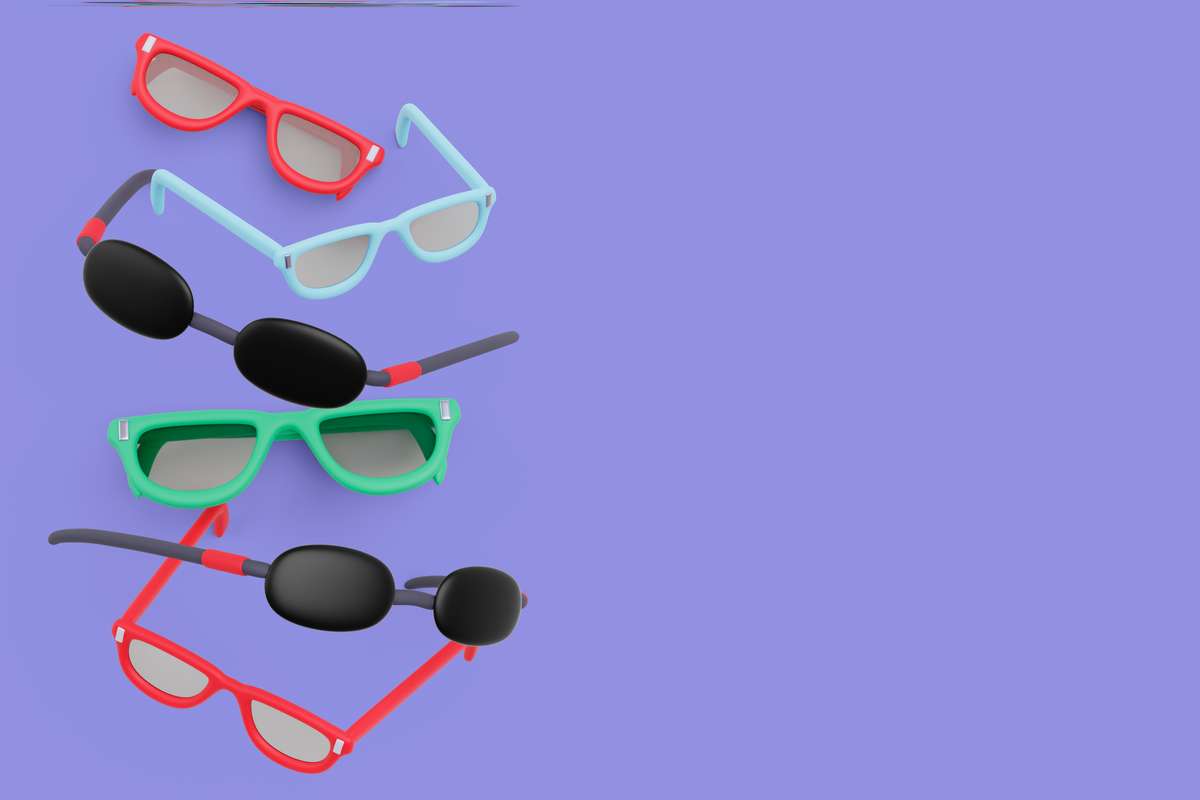Sunglasses are a summer essential, a shield against the sun’s harsh glare. But with a vast array of styles and features available, choosing the right pair can feel overwhelming. One key question often arises: polarized vs. non-polarized sunglasses, which ones offer the best protection and visual comfort?
Let’s dig deep into the difference between polarised and non polarised lenses, explore their benefits and drawbacks, and guide you towards making an informed decision.
Understanding Light and Glare: The Science Behind Sunglass Lenses
Sunlight travels in waves, and when these waves bounce off reflective surfaces like water, asphalt, or snow, they create glare. Glare can cause discomfort, squinting, and even temporary vision problems.
- Non-polarized lenses simply absorb UV rays and reduce overall light intensity. While they offer some protection from the sun’s harmful rays, they do little to address glare.
- Polarized lenses, on the other hand, contain a special filter that acts like a venetian blind, selectively blocking horizontally polarized light waves that cause glare. This significantly reduces the harshness of reflected light, creating a more comfortable and visually clear experience.
Imagine this: You’re enjoying a day at the beach. With non-polarized sunglasses, the shimmering reflection of the sun on the water creates a hazy, uncomfortable view. However, polarized sunglasses filter out that glare, allowing you to see the crystal-clear water and vibrant colors beneath the surface.
Exploring the Advantages of Polarized Sunglasses
So, are polarized sunglasses better than non-polarized ones? For many situations, the answer is a resounding yes! If you knew how polarized sunglasses work then you’d definitely choose polarize sunglasses over any other glasses. Here’s why:
- Reduced Glare: The primary benefit of polarized lenses is their exceptional ability to minimize glare. This makes them ideal for activities like driving, boating, fishing, or spending time outdoors on reflective surfaces.
- Enhanced Color Perception: By filtering out glare, polarized lenses allow you to see colors with greater accuracy and vibrancy. The world around you appears sharper and more defined, making outdoor activities even more enjoyable.
- Improved Contrast: Polarized lenses increase contrast, making it easier to distinguish objects and details. This is particularly beneficial for activities like driving, where clear visibility is crucial.
- Reduced Eye Strain: Glare can cause eye fatigue and strain. Polarized lenses significantly alleviate this discomfort, allowing your eyes to relax and enjoy the view.
When Might Non-Polarized Sunglasses Be a Better Choice?
While polarized sunglasses offer numerous advantages, there are a few situations where non-polarized lenses might be preferable:
- Looking at Digital Screens: Polarized glasses can sometimes interfere with the visibility of LCD screens found in car dashboards, GPS devices, or cell phones. For activities that require frequent use of these screens, non-polarized lenses might be a better option.
- Night Vision: Polarized lenses can slightly reduce overall light transmission. This can be a disadvantage in low-light conditions, where you might want maximum light allowance for clear vision.
- Certain Sports: Some athletes, particularly snowboarders or skiers who rely on reading the sheen of light on snow to identify icy patches, might prefer non-polarized lenses for better perception of glare variations.
Making the Perfect Choice: Polarized vs. Non-Polarized Sunglasses
Ultimately, the best choice between polarised and non polarised sunglasses depends on your individual needs and lifestyle. Consider these factors:
- Activities: If you spend a lot of time outdoors, especially in bright, reflective environments, polarized lenses are highly recommended.
- Visual Comfort: Do you experience eye strain or discomfort in bright sunlight? Polarized lenses can significantly improve your visual comfort.
- Digital Screen Usage: If your activities involve frequent use of digital screens, non-polarized lenses might be a better fit.
- Budget: Polarized lenses are generally more expensive than non-polarized ones.
Here’s a quick cheat sheet to help you decide:
- Choose polarized sunglasses for: Driving, boating, fishing, hiking, spending time outdoors on reflective surfaces.
- Choose non-polarized sunglasses for: Looking at digital screens frequently, low-light conditions, certain sports that rely on glare perception.
Beyond Polarization: Additional Considerations for Selecting Sunglasses
While polarized vs. non-polarized is a crucial factor, other aspects also contribute to choosing the perfect pair:
- UV Protection: Ensure your sunglasses offer 100% UVA and UVB protection to safeguard your eyes from the sun’s harmful rays.
- Lens Color: Consider the tint of the lenses. Gray lenses offer a neutral view, while brown or amber lenses can enhance contrast and depth perception. Choose a color that suits your activities and preferences.
- Fit and Comfort: Your sunglasses should fit comfortably and securely without slipping or causing pressure points. Try on different styles to find the perfect fit for your face shape.
- Frame Material: Sunglasses come in various frame materials, each with its own advantages. Plastic frames are lightweight and affordable, while metal frames offer durability and a classic look. Choose a material that suits your style and needs.
See Clearly, Look Great: Enjoy the Perfect Pair of Sunglasses
By understanding the difference between polarised and non polarised sunglasses, their pros and cons, and other key considerations, you’re now empowered to make an informed decision. So, step out into the sunshine with confidence, sporting a pair of sunglasses that provide both exceptional protection and a stylish touch to your look.
Happy shopping!
P.S. Don’t forget to consider UV protection when purchasing sunglasses for children. Their eyes are even more susceptible to sun damage than adults.





